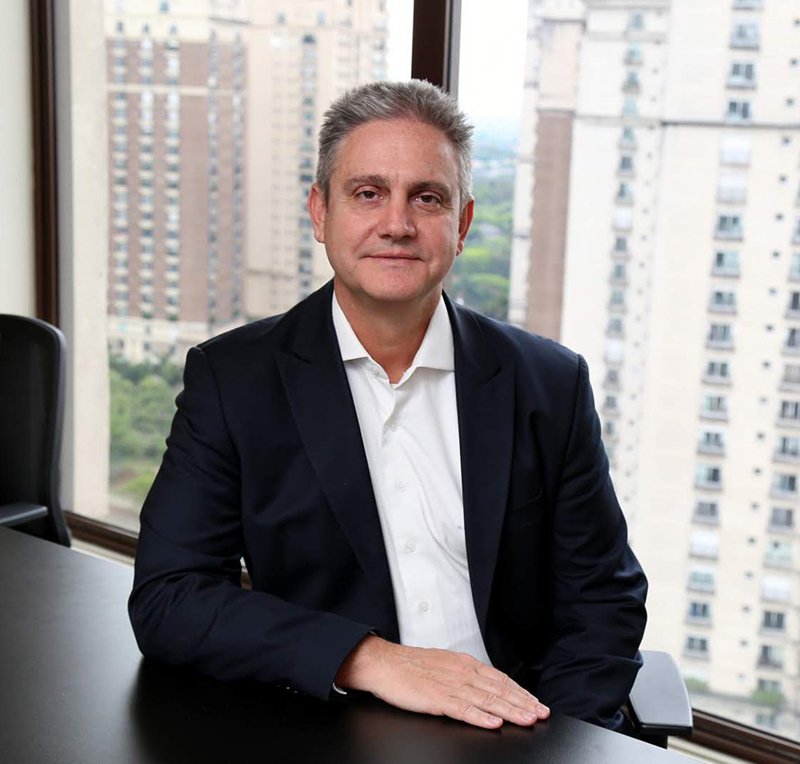Interview With Marcos de Callis: Commitment to Amec’s Strategic Agenda
Elected as Amec’s new Board of Directors’ Chairman, Marcos de Callis reaffirms his commitment to deepen and strengthen the associations’ strategic agenda. Replacing Walter Mendes, who remains as a Board Member, the new Chairman of Amec’s governance body explains his view about how to generate more value to members in an exclusive interview to Viewpoint Amec. The executive also shares his analysis about the current scenario and the main priorities of capital markets.
Marcos de Callis is an engineer specialized in management and finance. With 37 years of experience in the fund management industry, he has worked in several companies such as Citibank, HSBC, Itaú, Schroders, and Banco Votorantim. He has been a member of Amec’s Board of Directors since 2017 and now, in his third tenure, he takes on the role of Amec’s Chairman. Check out the interview below:

Mr. Marcos de Callis.
How will you contribute to Amec in your new office?
The first message I’d like to send as the Chairman of the Board is the commitment to the strategic agenda, which has been in motion since Fábio Coelho was hired in 2019. I will work for the progress, improvement and development of this project designed less than two years ago. The main goal is to fulfill Amec’s mission of fostering the development of capital markets in a fair way.
How has Amec acted to develop the market and improve the relationship between investors and companies?
Whenever needed, we collaborate to improve proposals presented by regulators, specially in public hearings. Regarding the actions alongside companies, the association works to improve governance in significant transactions, aiming to mitigate divergences that put controlling and minority shareholders of Brazilian companies on opposite sides. We evaluate the key points of value creation for companies, and, at the same time, we balance the diverging interests.
What are the priorities when it comes to Members?
From a practical point of view, the goal is to support the actions Mr. Coelho has been developing in two main directions. One of them is to increase the member value by creating a perception of value and even a sense of belonging. There are several ways to do so. For instance, generating interesting content, hosting events and webinars, creating forums, among others. Those are actions that can be seen by Members as things that add value. On another front, we aim to increase the Membership base. This boosts our reach and adds more resources to new projects. It is essential to count on a large number of members who represent the interests of several kinds of institutional investors in the Brazilian market.
What is the target audience for the expansion of Amec’s Membership base?
On the one hand, we have been working to increase the presence of pension funds. Mr. Coelho’s experience as former Chairman of the regulatory sector has been helping this process. On the other hand, we still see foreign investors are distant. There is a challenge to face, which is the fact Brazil is becoming less important for international markets. This makes it more difficult for Amec to broaden its international reach.
We have seen a greater number of independent fund managers in the country. Is this audience on the associations’ radar?
As interest rates decreased, stocks gained a bigger space in the fund management industry and in the portfolio of Brazilian investors. Then, there was a significant growth in the number of independent fund managers. Of course, Amec is interested in reaching out to this group and, since last year, we have been making contact so they can know more about the advantages of getting acquainted with the agenda proposed by the association.
How do you evaluate the increase in IPOs in the past years and Amec’s work about it?
We had a strong movement of IPOs in 2019 and 2020, and we continue to see it this year. It is the third year of this trend that is clearly boosted by lower interest rates. It is very positive to have a more dynamic capital market, with more access for companies and entrepreneurs to raise funds to develop their business projects. On the other hand, the heated market scenario increases Amec’s responsibility in monitoring these operations from the point of view of advocating for better Governance practices.
A recurring subject in the world of asset management is ESG. How has Amec approached this issue?
ESG became a strategic priority to the association in the past years. It is an example of value generation in which we can assist our members by putting them in touch with the best practices around the world, helping them understand how these concepts have been incorporated in investment decisions. Socioeconomic issues are seriously intertwined with investors on the global stage. In Brazil, we have highly advanced institutions, but most of them are still on the first steps of the journey. Actually, Amec’s Stewardship Code is being revamped to better fit in this agenda.
What other issues should Amec be aware of in the current scenario?
There are many issues on the radar. One of them is the work of boards in corporations. This has been a priority for Amec’s supervision and manifestations lately. I would add to the list state-owned enterprises governance, in which we support more aligning between the government and the remaining shareholders. Besides that, we are having debates over creating super-voting shares in Brazil. And, more recently, we have seen the need for improving voting dynamics through remote voting ballots, especially in this time of pandemic when in-person meetings hardly happen.

